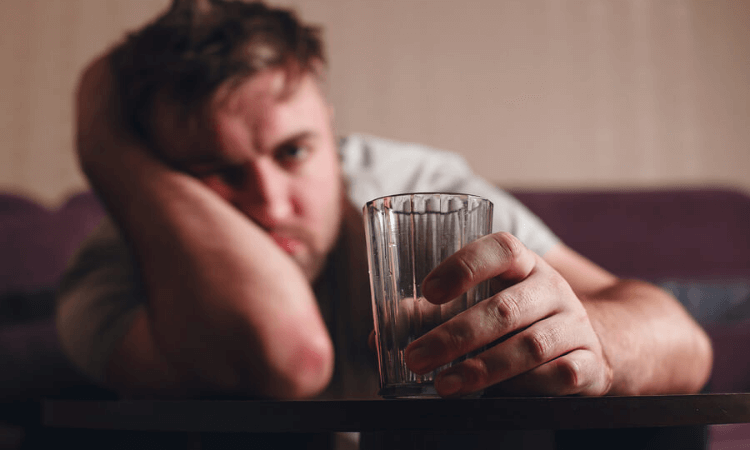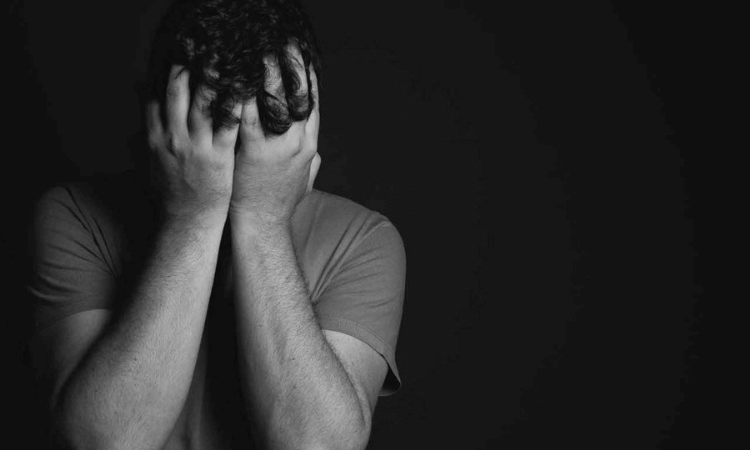Depression is a common mental health condition that affects millions of people worldwide. While depression can make life feel hopeless, recovery is possible with the right treatment.
At Recovery In Tune, we offer evidence-based mental health programs and therapies to support those struggling with depression. If you’re in or around the David, FL, area, we can help you live a healthier, more fulfilling life.

What to Know About Depressive Disorders
Depressive disorders are mental health conditions that involve persistent feelings of sadness, hopelessness, and emotional numbness. Sadness is a normal human emotion that we all feel sometimes, but it shouldn’t be part of your everyday life.
Depression is more intense and lasting than typical feelings of sadness and can affect relationships, school, work, and your personal health. But, it’s possible to manage depressive disorders with appropriate treatment.
Recovery In Tune offers a comprehensive and holistic approach to treating clinical depression. Our compassionate team is here to provide hope and support for your journey to recovery.
Causes & Risk Factors of Depression
Depression doesn’t have a single, identifiable cause. Instead, research says a combination of genetic, psychological, and environmental factors likely causes it.
While there isn’t a single cause of depression, there are risk factors that can increase your likelihood of developing the condition. These risk factors may include:
- A family history of depression or other mental health disorders
- Imbalances of certain brain chemicals, like serotonin or dopamine
- Hormone changes or imbalances
- Experiencing trauma or traumatic life events
- Experiencing grief or loss
- Substance use
- Smoking
- Certain personality traits, like low self-esteem
- Certain medical conditions, like chronic pain or cardiovascular disease
- Taking certain medications
- Having other mental health conditions
These risk factors don’t mean depression is inevitable, but it’s good to know if you have a higher risk. This may help you recognize symptoms earlier and seek early intervention and support from care facilities like Recovery In Tune.
Common Symptoms of Depression
Depression isn’t the same experience for everyone. Symptoms can vary, but there are some common symptoms associated with depressive disorders. These symptoms include:
- Persistent feelings of sadness or emptiness
- Difficulty getting out of bed or finding motivation
- Loss of interest in previously enjoyed activities
- Sleep problems like insomnia or excessive sleeping
- Feelings of worthlessness
- Feelings of guilt or self-blame
- Difficulty focusing or concentrating
- Changes in appetite
- Weight loss or weight gain
- Fatigue and lack of energy
- Physical symptoms, such as headaches or digestive issues
- Thoughts of death, suicide, or self-harm
Symptoms must last at least two weeks to be diagnosed with depression. If you or a loved one are experiencing symptoms of depression, it’s important to seek professional help. Mental health care can help you manage your depressive disorder and live a happier life.
Types of Depression Treated at Recovery In Tune
Depression isn’t just a general condition. There are several different types of depression and the type of depression you have guides the treatment plan. At Recovery In Tune, we offer programs for various forms of depression.
Some of the types of depression we help treat include:
- Major depression: Major depression, or Major Depressive Disorder, is characterized by intense sadness or loss of interest in daily life. This form of severe depression can affect work, relationships, and overall functioning.
- Bipolar disorder: Bipolar disorder is a mood disorder characterized by mood swings between depressive lows and manic highs. The manic episodes are characterized by periods of extreme energy, while the low phases bring on episodes of depression.
- Persistent depressive disorder (PDD): PDD, also known as dysthymia, is a chronic form of mild depression lasting two years or more. This may have milder symptoms than major depression but can take a physical and emotional equivalent to major depressive disorder.
- Other types of depression: We also treat other forms of depression like seasonal affective disorder (SAD), situational depression, postpartum depression, treatment-resistant depression, and more.
No matter what type of depression you’re dealing with, Recovery In Tune can develop a treatment plan to help.

Now is the perfect time to begin to heal!
Long Term Effects of Depression
When left untreated, depression can lead to other serious health problems. The long-term side effects of depression may include:
- Chronic health conditions: Depression can lead to excess weight gain or obesity. This may lead to or worsen health conditions like heart disease, high blood pressure, and diabetes.
- Relationship problems: Depression can make it difficult to connect with people or maintain meaningful relationships. This can strain or even ruin relationships with family, friends, and partners.
- Risk of substance use disorder: Depression can increase your risk for addiction and substance abuse. Those with depression may sometimes turn to drugs or alcohol to cope.
- Risk of other mental health conditions: Depression can increase your risk of other forms of mental illness, such as anxiety disorders.
- Suicidal thoughts or behavior: Depression is a leading risk factor for suicide and suicide attempts. Treatment and intervention are essential if you’re experiencing suicidal thoughts.
Seeking treatment is the best way to prevent or mitigate the long-term complications and symptoms of depression. At Recovery In Tune, we can help put you on the path to long-term health and well-being.
Depression Treatment Program in Davie, FL
At Recovery In Tune, we offer several treatment program options for those depressive disorders. Some of the programs we offer include:
Our mental health partial hospitalization program (PHP) provides structured, intensive treatment in a supportive environment.
In our PHP, you’ll attend treatment during the day and return home to a safe, supportive environment at night. This program bridges the gap between 24/7 residential care and outpatient care, allowing you to maintain some of your regular routine.
Our mental health outpatient program (IOP) is more flexible than the PHP. It’s ideal for those who require ongoing depression support while maintaining their typical daily lives.
Patients in our mental health IOP attend daily or weekly outpatient therapy and counseling sessions to get the support they need while managing their condition.
It’s common for depression to coexist with other conditions, like anxiety and substance use disorder. Our dual diagnosis treatment program addresses depression and your co-occurring conditions with a tailored treatment approach.
Treating all co-occurring conditions can improve the likelihood of successful symptom management and recovery.
For each of our programs, you can access therapies and services such as:
- Therapies: Access to psychotherapy, cognitive behavioral therapy, and other talk therapy interventions.
- Life skills and education workshops: We teach various skills and education workshops to give you practical tools to use in everyday life.
- Psychiatric services: Access to mental health professionals and services. The Recovery In Tune team offers holistic treatment options, including therapy, support groups, medications, or a combination.
- Medication-assisted treatment: Medication is sometimes necessary for depression treatment. Some common medications for the treatment of depression include selective serotonin reuptake inhibitors (SSRIs), serotonin-norepinephrine reuptake inhibitors (SNRIs), tricyclic antidepressants (TCAs), and bupropion. Our team can help you navigate antidepressant medications to determine the best possible path for effective treatment.
Therapies for Depression at Recovery In Tune
At Recovery In Tune, we offer a range of therapies to address depression and other mental disorders. These therapies are evidenced-based approaches that support holistic recovery. Our therapies for depression include:
Our 12-step facilitation therapy is rooted in the 12-step principles and emphasizes accountability, support from peers, and personal responsibility. Building a strong support network of peers, friends, and family members can help with sustainable recovery.
Cognitive behavioral therapy (CBT) is an effective therapeutic approach for depression that helps individuals identify and change negative thought patterns that contribute to their condition.
Our health care professionals work with patients to reframe these thoughts and develop healthier ways to cope.
Stress management practices like mindfulness and meditation can ground you and keep you present in the moment. These practices can help regulate emotions and manage negative thoughts.
Engaging in physical activity like yoga or adventure therapy can help you relieve stress and feel a sense of achievement. These types of alternative therapies can be great outlets to help support your mental health journey.
If you’ve experienced trauma as an adult or adolescent, addressing your underlying issues can be critical on your journey to depression recovery. Recovery In Tune provides a safe and comfortable space to explore and process these past experiences.
Find Supportive Care for Depression at Recovery In Tune
Finding help for depression can feel overwhelming, but you don’t have to face this debilitating condition alone. Recovery In Tune offers compassionate care and support for you or your loved ones.
Our programs in Davie, FL, offer a blend of evidence-based therapies and medical services to foster recovery and restore hope. Get in touch today to start your journey to a healthier, happier, and more fulfilling life.
Depression Treatment FAQs
Depression treatment isn’t a one-size-fits-all solution. Treatments can involve a blend of therapy, support groups, lifestyle changes, and medications, if necessary.
Depression treatment can be highly effective. You can experience significant symptom relief and improved quality of life with the right treatment plan.
Depression may not have a permanent cure, but it’s very possible to achieve long-term recovery through treatment. Many who suffer from depression go on to live healthy and fulfilling lives after treatment.
Sources
- American Psychiatric Association. “What is Depression?” Retrieved from: https://www.psychiatry.org/patients-families/depression/what-is-depression. Accessed on October 29, 2024.
- Centers for Disease Control and Prevention (CDC). “Mental Health Conditions: Depression and Anxiety.” Retrieved from: https://www.cdc.gov/tobacco/campaign/tips/diseases/depression-anxiety.html. Accessed on October 29, 2024.
- Cincinnati Children’s Hospital. “Depression and Suicide.” Retrieved from: https://www.cincinnatichildrens.org/health/d/depression-suicide. Accessed on October 29, 2024.
- Mayo Clinic. “Depression (major depressive disorder).” Retrieved from: https://www.mayoclinic.org/diseases-conditions/depression/symptoms-causes/syc-20356007. Accessed on October 29, 2024.
- National Institutes of Health (NIH). “Major Depressive Disorder.” Retrieved from: https://www.ncbi.nlm.nih.gov/books/NBK559078/. Accessed on October 29, 2024.